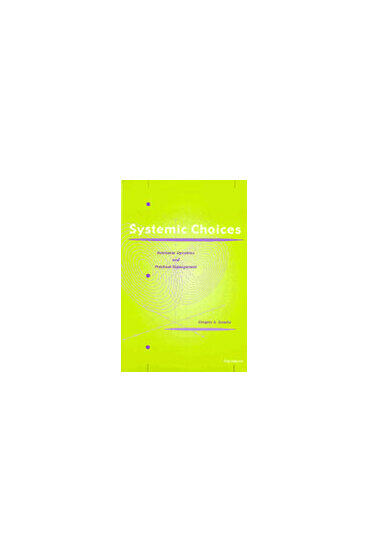Systemic Choices
Nonlinear Dynamics and Practical Management
A foundational book explaining the sources and uses of nonlinear dynamics in the social sciences
Description
The revolution in social scientific theory and practice known as nonlinear dynamics, chaos, or complexity, derived from recent advances in the physical, biological, and cognitive sciences, is now culminating with the widespread use of tools and concepts such as praxis, fuzzy logic, artificial intelligence, and parallel processing. By tracing a number of conceptual threads from mathematics, economics, cybernetics, and various other applied systems theoretics, this book offers a historical framework for how these ideas are transforming the social sciences. Daneke goes on to address a variety of persistent philosophical issues surrounding this paradigm shift, ranging from the nature of human rationality to free will. Finally, he describes this shift as a path for revitalizing the social sciences just when they will be most needed to address the human condition in the new millennium.
Systemic Choices describes how praxis and other complex systems tools can be applied to a number of pressing policy and management problems. For example, simulations can be used to grow a number of robust hybrid industrial and/or technological strategies between cooperation and competition. Likewise, elements of international agreements could be tested for sustainability under adaptively evolving institutional designs. Other concrete applications include strategic management, total quality management, and operational analyses.
This exploration of a wide range of technical tools and concepts will interest economists, political scientists, sociologists, psychologists, and those in the management disciplines such as strategy, organizational behavior, finance, and operations.
Gregory A. Daneke is Professor of Technology Management, Arizona State University, and of Human and Organization Development, The Fielding Institute.
Gregory A. Daneke is Professor of Technology Management, Arizona State University, and of Human and Organization Development, The Fielding Institute.

